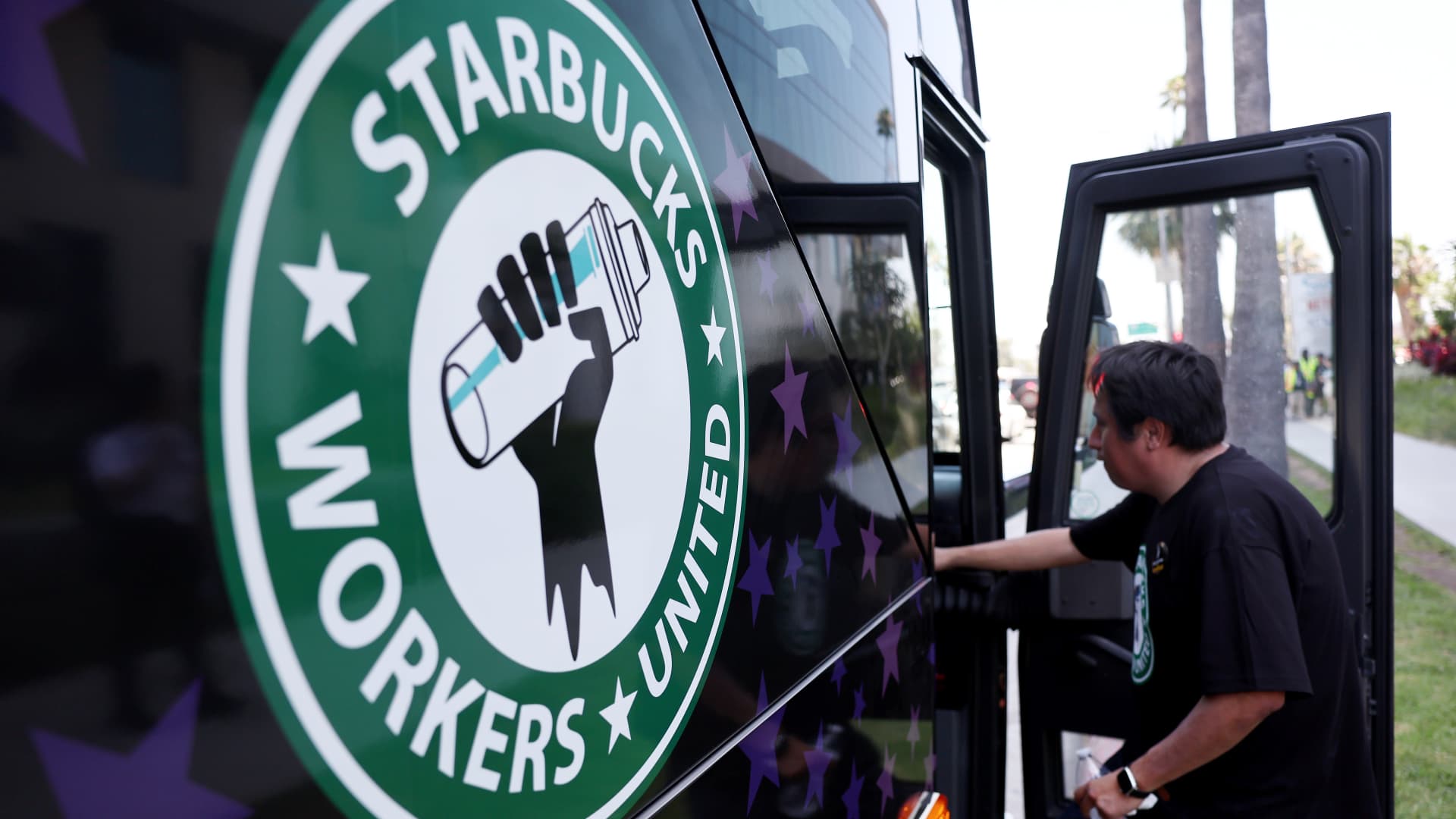Boeing on Wednesday reported a loss of $355 million for the first three months of the year as it grapples with a quality crisis stemming from a Jan. 5 flight that tore off a panel on one of its planes .
The loss was not as large as investor analysts expected. Boeing posted first-quarter revenue of more than $16.5 billion, down from the same period last year but also slightly more than analysts expected, and burned through nearly $4 billion in cash.
Plate damage to a 737 Max 9 jet during an Alaska Airlines flight did not result in any major injuries, but it dealt a major blow to the company and raised renewed concerns about Boeing’s practices five years after two fatal crashes involving 737 Max 8 planes. Since the Jan. 5 flight, the company has taken steps to improve quality, including expanding inspections, changing the way work is done, improving training and getting more feedback from employees.
“We are absolutely committed to doing everything we can to ensure that our regulators, customers, employees and the flying public have 100% confidence in Boeing,” Boeing CEO Dave Calhoun said in a letter to employees on Wednesday.
Last month, Mr. Calhoun said he would step down by the end of the year, part of a broader management shakeup. Boeing is also in talks to buy Spirit AeroSystems, a troubled supplier that builds the body of the Max jet and was part of Boeing until it was spun off two decades ago.
The Federal Aviation Administration has tightened scrutiny of Boeing, limiting 737 production to 38 planes per month, although production remains well below that level. The regulator has required Boeing to submit a quality improvement plan by the end of May.
Boeing had hoped to produce 50 737s and 10 larger 787s a month starting next year, but analysts say the company is unlikely to meet that goal. The recent crisis contributed to a significant slowdown in first-quarter deliveries, although the company reported a significant 126 net new orders, thanks in large part to an order from American Airlines for dozens of 737 Max 10 aircraft, a jet that the FAA has yet to certify. Boeing said it had an order backlog of 5,600 aircraft worth $448 billion.
“In the short term, yes, we are in a difficult time,” Mr. Calhoun said in the letter to employees. “Reduced deliveries may be difficult for our customers and our finances. But safety and quality must and will come first.”
Boeing’s commercial aircraft division posted an operating loss of more than $1.1 billion, compared with an operating profit of $151 million in its defense division and a profit of $916 million in its services division, which provides maintenance support to customers.
After the Jan. 5 flight, all Max 9 planes were briefly banned from flying, frustrating Alaska Airlines, United Airlines and other companies that rely on the plane. Both airlines said last week that they would have reported quarterly profits earlier in the year if the plane had not been grounded.
United said it would receive an undisclosed amount of compensation from Boeing for future aircraft purchases, while Alaska Chief Executive Ben Minicucci told reporters and analysts in a call last week that Boeing had paid his airline $162 million. Mr. Minicucci described that payment as “a strong expression” of the airline’s close relationship with Boeing.
“Alaska needs Boeing, our industry needs Boeing and our country needs Boeing,” he said.
Boeing faced two tense Senate hearings this month. One was about criticism of the company’s safety culture, the other was about concerns from a whistleblower who raised questions about the durability of the 787 Dreamliner, a double-aisle plane often used for long-duration flights. Distance flights. Boeing has vehemently denied his allegations, saying the plane’s body showed no signs of fatigue after extensive testing and years of commercial flights.
In February, an FAA panel of experts concluded a year-long investigation and found that Boeing’s safety culture remains flawed despite improvements following deadly crashes in 2018 and 2019. The panel also found that Boeing has made progress in limiting interference by employees performing delegated oversight responsibilities on behalf of the FAA, but opportunities for retaliation remain.
Boeing has said it is taking these findings seriously. The company briefly paused work at more than a dozen locations to conduct quality discussions with more than 70,000 employees, Mr. Calhoun said in his letter to employees. Through these meetings, the company received more than 30,000 suggestions for improvement. Additionally, workers were encouraged to submit concerns through the internal Speak Up portal, resulting in an increase in submissions.
To address complaints that the company has focused too much on financial results, Boeing announced this month that it would align employee pay more closely with quality measures. Operating performance will now make up about 60 percent of the valuation used to determine annual incentives in Boeing’s commercial aircraft division, up from 25 percent previously.
Source link
2024-04-24 12:23:04
www.nytimes.com
















